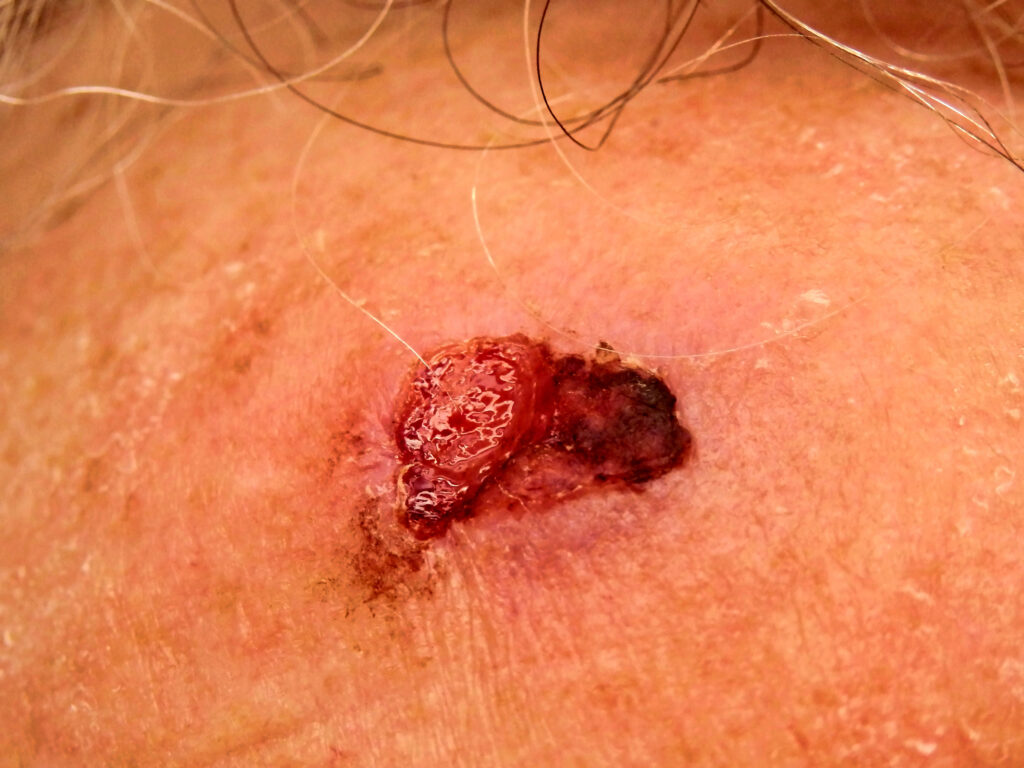A simple artificial intelligence (AI) model may perform on a par with experienced dermatologists when assessing the aggressiveness of cutaneous squamous cell carcinoma (cSCC), according to new research in the Journal of the American Academy of Dermatology International.
Preoperative punch biopsies are not routinely performed for suspected cSCC in Sweden, where the study took place. Surgery is instead carried out based solely on the clinical suspicion of a tumor, with the entire excised specimen sent for histopathological analysis.
Enter AI.
For the study, the researchers trained an AI system in image analysis using 1,829 clinical close-up images of confirmed cSCC. The AI model’s ability to distinguish three levels of tumor aggressiveness was then tested on 300 images and compared with the assessments of seven independent experienced dermatologists. The images comprising the study data were taken within dermatological healthcare at the university hospital between 2015 and 2023.
AI vs. Experts
The AI model performed almost identically to the medical experts. At the same time, agreement between individual dermatologist assessments was only moderate.
Two clinical features—ulcerated and flat skin surfaces—were found to be clearly associated with more aggressive tumor growth. Tumors exhibiting these characteristics were more than twice as likely to fall into one of the two higher levels of aggressiveness, the study showed.
“We believe that one such application area [of AI] could be the preoperative assessment of suspected skin cancers, where more nuanced conclusions can influence decisions. The model we’ve developed needs further refinement and testing, but the way forward is clear—AI should be integrated where it actually adds value to decision-making processes within healthcare,” says study author Sam Polesie, MD, PhD, an Associate Professor of Dermatology and Cenereology at the University of Gothenburg and a Dermatologist at Sahlgrenska University Hospital in Sweden, in a news release.


